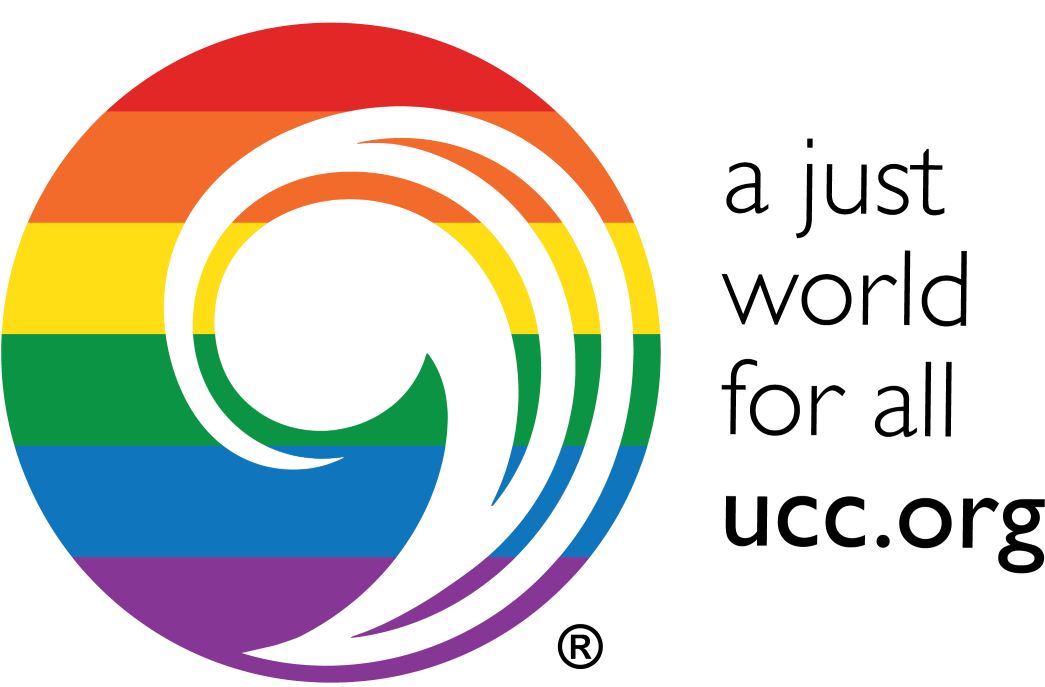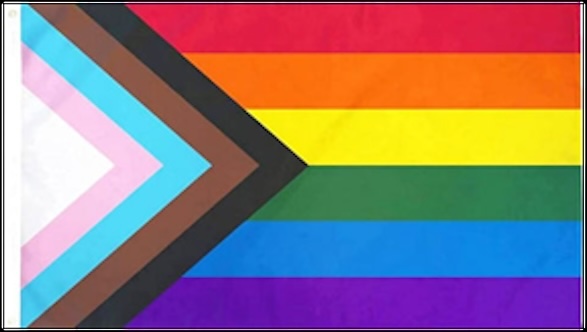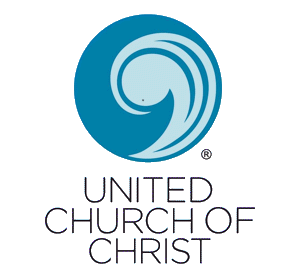“A Vision for the Future of Unity and Justice” An Open Pastoral Letter to the United Church of Christ
December 5, 2024 by Kara White
Filed under What If? blog

Today, Leaders of the United Church of Christ have offered a courageous, inspiring Pastoral Letter to the whole UCC Community.
The letter opens with powerful words of Christ from the Gospel (John 14:27), and the letter concludes with this beautiful prayer:
God of hope and love, you are ever-present with us. We wait patiently for you, knowing that you hear our prayers. The call to do justice is on-going. As governments come and go, we are called to bring healing and care to those in need. This is such a moment. A time when there will be the hungry to feed, the homeless to house, and the widows and orphans who will need our care. This is a time when we will continue to honor the inherent dignity and worth of each of your children. This is a time when the church will be prophetic, calling for truth and for change. Provide your church and all who lead and minister within it hope and healing for the living of these days. Amen.
We encourage you to follow this link and read the letter in its entirety here –
A Pastoral Letter to the United Church of Christ on Unity and Justice
Edgy
August 29, 2024 by Kara White
Filed under What If? blog
“When you reap the harvest of your land, don’t reap the corners of your field or gather the gleanings. Leave them for the poor and alien. I am God, your God.” – Leviticus 23:22 (MSG)
At the small scrappy city church I used to serve, nobody wanted to mow the lawn, and we couldn’t afford a landscaping company. We made a creative decision: we’d tear it up and plant a garden instead.
At the front, near the sidewalk, we planted a peach tree. In Boston. Probably at the wrong time of year. We didn’t spray it; we didn’t prune it. We added a wonky bench next to it, and a sign that invited people to snack from our garden.
Against all odds, the peach tree thrived. It produced a dozen, then several dozen, then hundreds of peaches with each passing season.
Commuting pedestrians who would never dare enter a Christian church would soften their stance and step gingerly onto this sacred ground. Snag a peach and put it in their pocket. Eat a few cherry tomatoes in season, or snip some herbs. Sit on the bench, sometimes just look around at the world going by instead of at their phones, an endless stream of bad news.
Ecologists teach that edge habitat—where human ecosystems bump wild ones—is especially fertile, attracting and nourishing all kinds of wildlife.
What would it mean to cultivate edge habitat in our hearts? To keep soft boundaries, to leave our outer edge fruitful, and let the poor in spirit and those alienated from community rest there and be nourished? God can take a scanty harvest and make it an ample Eden, with our willingness.
PRAYER
Holy One, the world leaves us all on edge. Make us edgy in other ways, as we welcome more people into the sacred ground of our hearts.
Rev. Molly Baskette
Find this post and others at the UCC Daily Devotional, (which can be delivered right to your inbox! ).
What the Colors of the Progress Pride Flag Represent
August 25, 2024 by Rich
Filed under What If? blog

The Progress Pride Flag was designed in 2018 by Daniel Quaser, a non-binary artist and graphic designer. The word “progress” in the name of this flag is not only about adding new colors. It is also because of the shape, which differs from the original design of horizontal stripes only. The Progress Pride Flag displays White, Pink, Baby Blue, Black and Brown depicting the shape of an arrow, while retaining the original six rainbow colors in horizontal stripes alongside the new, additional colors.
Canada and the United States of America continue moving forward on the journey in support of LGBTQIA+ rights, and Daniel Quaser’s design is inspired by this progress, shaping the Transgender Flag colors along with black and brown stripes into an arrow pointing forward. Quasar spoke publicly about how work is still needed in terms of ‘people of color’ rights and ‘trans’ rights. The arrow design is meant to highlight this ongoing need for progress.
Each color on the Progress Pride Flag has a distinct meaning.
Here is a description of what each color represents:
Red
The color Red on the flag represents life.
Orange
The color Orange on the flag represents healing.
Yellow
The color Yellow on the flag represents sunlight.
Green
The color Green on the flag represents nature.
Indigo or Blue
The color Indigo or Blue on the flag represents serenity.
Violet
The color Violet on the flag represents spirit.
Black and Brown
The colors Black and Brown on the flag represent people of color (POC). This is an important addition, because people of color often have been left out of the narrative despite being highly influential in the LGBTQIA+ movement.
Additionally, the colors Black and Brown represent people living with HIV/AIDS, those who have died from it, and the stigma around the virus that is still present today.
Pink, Baby Blue and White
The colors Pink and Baby Blue have been used traditionally to represent whether a baby is a boy or a girl. Here, the colors denote those genders. The color White on the flag represents people who are transitioning, intersex, or identify outside of the gender binary.
What if… God’s Abundant Presence was EVERYWHERE?
August 7, 2024 by Kara White
Filed under What If? blog
Ecumenical means promoting or relating to unity among the world’s Christian Churches. The United Church of Christ, which was founded just under seventy years ago out of an ecumenical impulse following the second world war, is founded on the principle that working together, people of many faith traditions can achieve more justice than any one organization working alone.
Inspired by the story in John 6:1-21, in which one gift multiplies to feed an entire crowd, many UCC churches have gathered ecumenically with other organizations to create feeding programs inspired by the story of the loaves and fishes.
One of those is Pilgrim Church in Fond du Lac, WI. Founded in 1982, Loaves and Fishes in Fond du Lac provides meals to approximately 150-200 local people twice a week. Pilgrim church provides volunteers for quarterly meal preparation that includes donating and preparing food, set-up, serve, clean-up and distributing leftovers. The numbers of families served continues to grow and the program’s website emphasizes its open and welcoming nature. “Sometimes they may not be hungry for food but for companionship. The lonely people are hungry too; we never judge. This is everyone’s program. It is ecumenical and covers all faiths.”
Another is St. Luke’s UCC in Jeffersonville, IN. Loaves and Fishes in Jeffersonville is a weekly community meal in partnership with other local congregations and housed at St. Luke’s. Every Saturday, groups volunteer to plan, prepare, serve and clean up a meal for individuals who might not otherwise have a hot meal that day. Much more than a soup kitchen, Loaves and Fishes provides a sense of community and welcome to those who might not find welcome elsewhere.
Another Loaves and Fishes (this one called Fish and Loaves) program in Taylor, MI, counts St. Paul UCC in Taylor among its charter members. Fish & Loaves Community Food Pantry, a cooperative, non-sectarian, non-profit, faith based initiative seeking to insure adequate food and nutrition for all residents within several local communities: “client choice” pantry that allows individuals and families to “shop” on a monthly or bi-monthly basis for items they need, providing not only food but dignity to all they serve.
How will the story of the loaves and fishes inspire YOU?
UCC Sunday Bulletin Service
Getting the Good News
July 18, 2024 by Kara White
Filed under What If? blog
What if summer and year round reading could be at the touch of your fingers…?
What if you could get all kinds of good news, helpful information, stories of growth and announcements throughout the year in your inbox?!?!?!?
YOU CAN!!!!
The UCC has several daily, weekly, monthly or quarterly blogs, columns and newsletters that can be delivered right to your inbox! They cover a variety of topics and can be individually signed up for.
Blogs and newsletters covering a variety of news and information.
–The General UCC News blog provides the latest updates and stories from the UCC national setting.
—Witness for Justice is the blog for advocacy opportunities, updates and ideas.
—UCC Roots tells stories from the UCC National Setting about our history and heritage.
—The Pollinator is a blog for environmental justice and advocacy issues.
Columns and blogs for connection, discussion and reflection.
—Getting to the Root of It is a column for analysis and discussion of critical social justice issues.
—Encounters at the Well shares stories about spiritual growth and connection.
—Reflexiones shares reflections on faith, life and spirituality by guest writers.
General Subscriptions includes more newsletters, webinars, blogs and other unique opportunities from the UCC.
—COMma -Committees on Ministry- the Ministerial Excellence, Support & Authorization team (MESA) provides a monthly newsletter sharing case studies, reflections and resources for Committees on Ministry.
—Creation Justice Webinars -each month the UCC hosts a webinar featuring environmental justice leaders who educate and provide direction for action for communities of faith.
— Daily Devotional is a spiritually deep and refreshing well published daily and delivered right to your inbox.
— Join the Movement is where we share stories and grow as we answer the call to be an anti-racist church, learning together how to build a just world for all.
— JPANet– the Justice and Peace Action Network shares information on the grassroots efforts for advocacy across the country sending out weekly alerts allowing you to take timely action.
— Mind Body Spirit -the E-Newsletter published every other month supporting and promoting wellness ministries, news, events, and learning opportunities.
— Nurture the Soul – a webinar series- Tuesdays for Nurture, Thursdays for the Soul.
— Our Whole Lives (OWL) – a quarterly newsletter providing information to all interested in the OWL programs offered by the UCC and UUA.
— Weekly Seeds – a Bible study resource based on the Lectionary. Providing an in depth way to look at the text, reflect, study and share that experience with millions around the world.
Find these links and so much more at the United Church of Christ website.
Healing Powers
July 15, 2024 by Kara White
Filed under What If? blog
In June we celebrated the United Church of Christ’s commitment to growing into a fully Open and Affirming (ONA) fellowship, as we read a story of Jesus healing those who have been marginalized and outcast. Following Christ, the UCC has been a beacon for healing and hope for those pushed to the edges because of sexual or gender identity.
“Beginning in 1969, the United Church of Christ has advocated for the LGBT community. From the campaign to decriminalize same-sex relationships to support for marriage equality, the UCC has made a difference in the lives of LGBT citizens and their families. The issues have changed over the decades, but the basic commitment to full inclusion and human rights remains the same…
The ONA National Gathering this coming September is the family reunion of the Open and Affirming movement in the United Church of Christ! Members of any church—ONA or not-yet ONA—are welcome to attend. Expect a celebration with exuberant music, inspiring preaching, and workshops that will feed your mind and soul.
While the Religious Right and their allies in federal and state governments are renewing their attack on the basic civil liberties of LGTBQ Americans, and our international queer siblings are experiencing attacks and unconscionable laws, our growing community of churches needs to respond with confidence, commitment and faith.
This September’s National Gathering will focus on how ONA churches can act faithfully in our current social and political climate. We’ll learn best practices from vital and growing ONA churches. And, as is always true at our Gatherings, we’ll explore the intersections of our movement with other movements for social, racial, economic, and environmental justice.”
Find out more about how to register at openandaffirming.org .
Sent with Power
July 8, 2024 by Kara White
Filed under What If? blog
Mark 6:7-9 tells us that (Jesus) called the twelve and began to send them out two by two, and gave them authority over the unclean spirits. He ordered them to take nothing for their journey except a staff; no bread, no bag, no money in their belts; but to wear sandals and not to put on two tunics. (from the NRSV)
Some folks in the United Church of Christ jokingly refer to evangelism as “the e-word.” Evangelist simply means “messenger of good news.” And yet, the word ha=s become associated with the most damaging aspects of Christian experience. Even the idea of evangelism can call to mind uncomfortable or even traumatizing past experiences. And yet, as Jesus called those early disciples to a life of evangelism, he calls followers today.
Take some time today to consider the word evangelist.
Do you think the idea of United Church of Christ evangelism can be refreshed and renewed for a new generation? How might that be accomplished?
How do you feel when your body hears the word evangelism? Pay attention to where the word settles in your body. Do you feel quite comfortable? Very uncomfortable? Why do you think you have that response?
What do you think the role of an evangelist is? How does the role in modern times echo the call that Jesus made to his original disciples?
What are some ways that your faith community engages in evangelism now? What are some ways that your community could evangelize that it does not yet?
UCC Sunday Bulletin Service
Our Open and Affirming Covenant
June 28, 2024 by Rich
Filed under What If? blog

Ivy Chapel United Church of Christ celebrates God’s boundless and unconditional love by intentionally welcoming and celebrating all of God’s people. We commit ourselves to:
- addressing issues of faith openly and honestly
- nourishing the Spirit of God within all people
- creating a caring community that celebrates human diversity
- respecting the faithfulness and the wisdom of other faith traditions
- working with all others to create a just world for all
Called by God to love one another, Ivy Chapel United Church of Christ commits to being an Open and Affirming community of faith. We invite everyone into full participation in the life and leadership of this congregation, celebrating that each unique human being is a child of God. We love and affirm every person of any age, race, gender, ethnicity, nationality, faith tradition, physical ability, mental ability, sexual orientation, gender identity, and gender expression. We joyfully invite everyone to join in this ministry of ongoing commitment to live as an actively Open and Affirming community of God.
We celebrate our diversity as we journey in faith together.
Pushing the Boat Out
June 24, 2024 by Kara White
Filed under What If? blog
The United Church of Christ celebrates our 67th anniversary this weekend. These opening paragraphs of our history describe the ways in which very different faith communities prepared to live into the slogan “inessentials, unity; in non-essentials, liberty; in all things, charity.” How does your congregation still live out that slogan today?
On Tuesday, June 25,1957, at Cleveland, Ohio, the Evangelical and Reformed Church, 23 years old, passionate in its impulse to unity, committed to “liberty of conscience inherent in the Gospel,” and the Congregational Christian Churches, 26 years old, a fellowship of biblical people under a mutual covenant for responsible freedom in Christ, joined together as the united Church of Christ. The new church, embodied the essence of both parents, a complement of freedom with order, of the English and European Reformations with the American Awakenings, of separatism with 20th-century ecumenism, of presbyterian with congregational polities, of neoorthodox with liberal theologies. Two million members joined hands…
a message was sent to the churches from the Uniting General Synod, signed by its moderators, Louis W. Goebel and George B. Hastings, its co-presidents, and co-secretaries Sheldon E. Mackey and Fred S. Buschmeyer. after Acknowledging the separate ancestries of the parties to the union and citing ecumenical “relatives” of both denominations, the message stated, “Differences in ecclesiastical procedure, which in sundry places and times have occasioned tensions and disorders, are appointed their secondary place and are divested of evil effect.” The union, the message continued, was possible the “two companies of Christians hold the same basic belief: that Christ and Christ alone is the head of the Church… From him [we] derive the understanding of God, … participation in the same spirit, the doctrines of faith, the influence towards holiness, the duties of divine worship, the apprehension of the significance of baptism and the Lord’s Supper, the observance of church order, the mutual love of Christians and their dedication to the betterment of the world” (“Report on the Uniting General Synod:” Advance, July 12, 1957, p22).
You can read more of the story of the birth and early decade of our denomination by clicking on the link here-#UnitedChurch-who we are.
Flourishing
June 14, 2024 by Kara White
Filed under What If? blog
Jesus spoke to his followers in a parable about planting seeds. In cold climates, seeds can take many months to grow into plants and bear fruit. The job of gardeners and farmers is not only patience. The job is also to tend; to fertilize and water and weed until at last the fragile plants break forth, and then leaves, then flowers and finally produce. It takes a long time for seeds planted to bear fruit.
This week many congregations will be celebrating Juneteenth. Juneteenth has been celebrated for generations in African American communities, although for some communities this will be the first year that this celebration is acknowledged. It takes a long time for seeds planted to bear fruit.
The seeds of Juneteenth were planted on June 19th, 1865, when troops rode into Galveston, Texas announcing the end of the civil war and the freedom of all enslaved Americans. This was good news, yes. But this good news came more than two and a half years after the signing of the emancipation proclamation. It takes a long time for seeds planted to bear fruit.
Juneteenth was heartily celebrated in the early part of the 20th century with rodeos, speakers, preachers, music, worship and heaping tables of food, but those celebrations were largely shut down during the Jim Crow era. Recognition of Juneteenth began to be revived in black communities by activists in the 1960s and 1970s. The first legislation to make Juneteenth a national holiday was introduced in 1996. The legislation was finally signed into law in 2021. It takes a long time for seeds planted to bear fruit.
Whether your Juneteenth celebration this year is generations old, or is new this year, remember that it is the fruit of a seed planted decades before you were born. And the cycle does not end with this generation. As is the nature of growing things, the fruit you enjoy this season will produce seeds that will also, in their time, bear fruit. It takes a long time for seeds planted to bear fruit. May the seeds you plant this Juneteenth, however small or mighty, grow beautiful in its season.

